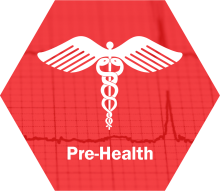
Biotech & Life Sciences
Do you enjoy conducting in-depth research, lab- and/or field-work, analyzing complex data, and exploring practical ways to improve lives? Then a career in biotech or life sciences may be a good fit for you!
Careers in Biotech & Life Sciences
Biotechnology and the Life Sciences cover a broad range of functions and industries. Professionals in these areas primarily conduct research and work in development.
Generally, those working in these fields do one of four types of work: basic research, applied research, testing, or support. Basic research seeks knowledge for its own sake, uncovering fundamental truths and transforming the unknown into the known. Often done at universities, basic research includes all areas of science. Applied research translates basic knowledge into practical, useful products and processes for use in areas such as medicine or agriculture. Testing in biotech often includes genetic testing - identifying changes in genes, chromosomes, and proteins. However, it can also include pharmaceutical testing, ranging from drugs and vitamins all the way to medical technology. Finally, Support roles typically include data analysis or programming – these roles are often the most technical within the biotech realm and scientists rely heavily on this technical support to intertwine “bio” with “tech.”
The Curriculum Vitae
The Curriculum Vitae (CV) is much more comprehensive and detailed than what we typically see in a resume, and may span many pages. A good rule for a CV is 2 pages for undergraduates and 3-4 pages for graduate students. However, this may be longer depending on the length and depth of your experience. In addition to the standard sections you would find on a Resume (Name and Contact Info, Education, Experience, Skills) a CV may have the following categories:
- Coursework
- Teaching Experience
- Research Experience
- Project Management
- Conference Presentations
- Publications
- Professional Association Membership
- Programs and Workshops
- Special Training
- Certifications
- Leadership Experience
If you are unsure whether to use a resume or CV, you can always reach out to someone in the organization, such as an alumni contact or recruiter to check which version to send.
Check out this page to learn more about CVs
Skills Training
Most of the specialized skills and training in this field will occur after completion of a degree. Most of the specialized skills and training in this field will occur after completion of a degree. However, as an undergraduate, one of the best things you can do is to experience undergraduate research – whether as a summer intensive or something you work on throughout the school year with a professor, there are amazing skills and experiences you can gain. Additionally, you can take relevant courses in the following fields: Biology, Chemistry, Biochemistry, Computer Science, Mathematics, Statistics, and Physics.
Some Common Job Titles Include:
- Bioinformatic Specialist
- Clinical Research Coordinator/Associate
- Toxicologist
- Research Assistant
- Laboratory Technician
- Genetic Counselor
- Quality Control Associate
Career Outlook
The outlook for careers in the sciences is excellent. The U.S. Department of Labor predicts steady growth for the biology and life science industry through 2022. Additionally, the types of organizations that are seeking out these roles continues to grow. For roles in research and testing, universities continue to be some of the leading opportunities. However, there are a growing number of private companies with opportunities in all areas of biotech and life sciences. Some hotspot areas include the Boston/Cambridge, MA area as well as the Interstate 270 area of Maryland. The BioPharmGuy is a great resource for identifying companies of interest based on research focus or geographical region.
Industry Nuances
|
Recruiting Timelines |
Resume vs. CV |
|
Depending on the type of employer and role, timelines in the sciences may vary. Large manufacturers tend to recruit more heavily in the fall. You will see UVA events such as the Engineering Career Conference and BioLink in the fall semester. Opportunities with universities for summer or full-time positions often begin recruiting late fall or early spring semester. |
Depending on the position you apply for, you may be asked to submit a resume or a CV (Curriculum Vitae). A good rule is that industry or business roles will typically expect a resume while academic or research-intensive roles will look for a CV. Read below for some tips on what to include in a CV, if requested. |
To find more tailored information on how to locate opportunities on and off Grounds, as well as how to best set yourself up for success in your application process, visit our UVA Pre-Health resource card!

